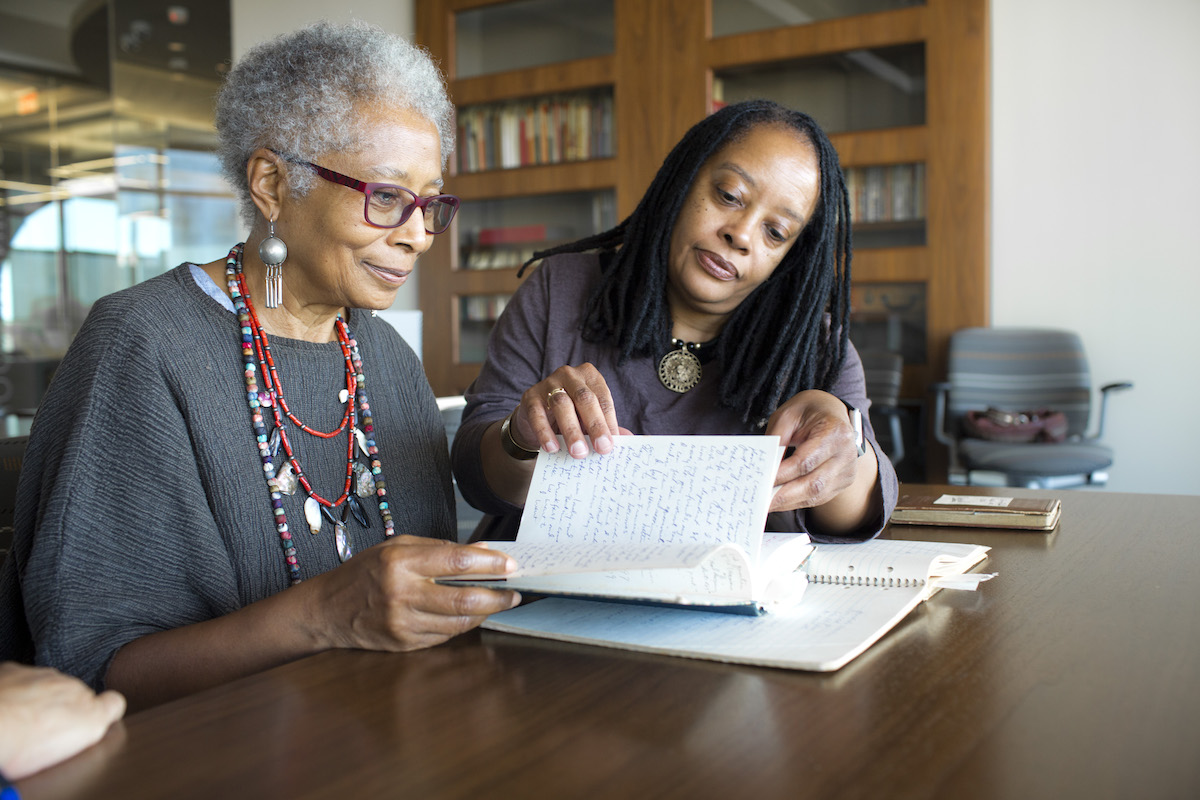Valerie Boyd spent much of her adult life sharing her knowledge about Black women writers such as Zora Neale Hurston and Alice Walker. Now, a new documentary about Boyd’s life and scholarship highlights her contributions as a writer, researcher, journalist and educator.
“Zora Head: The Life and Scholarship of Valerie Boyd” will debut during the Bronze Lens Film Festival Aug. 21-25, 2024, at the Tara Atlanta Theater (2345 Cheshire Bridge Rd. in Atlanta). A showing is scheduled for Saturday, Aug. 24, at 7 p.m.; attendees can order tickets for $10.
The film was directed by Clinton Fluker, senior director of culture, community and partner engagement for the Michael C. Carlos Museum and Emory Libraries, and Adam Forrester, a documentary filmmaker and videographer with Emory’s Academic Technology Services.
The work was produced by Fluker; Shannon O'Daniel, academic technology services producer; and Rosalind Bentley, deputy editor at the Southern Foodways Alliance, and a professor of practice in narrative nonfiction at the Grady College of Journalism and Mass Communication at the University of Georgia.
Leslie Wingate, Emory Libraries’ former director of campus and community relations, and Holly Crenshaw, Emory Libraries’ director of marketing and communications, served as associate producers.
The film was just nominated for a Bronze Lens Award for Best Documentary Short.
The 20-minute documentary explores Boyd’s life and scholarship, especially her focus on Black women writers. Boyd, who passed away in February 2022, authored the award-winning biography “Wrapped in Rainbows: The Life of Zora Neale Hurston” and served as editor for “Gathering Blossoms Under Fire: The Journals of Alice Walker,” for which she spent significant time researching in Walker’s archives in the Stuart A. Rose Manuscript, Archives, and Rare Book Library at Emory.
Boyd was also editor of “Bigger Than Bravery: Black Resilience and Reclamation in a Time of Pandemic,” an anthology that includes the writings of Pearl Cleage, Alice Walker, Tayari Jones, Imani Perry, Aunjanue Ellis-Taylor and others.
Fluker says he and the other filmmakers wanted to show the significance of Boyd’s contributions, not just academically, but on a personal and spiritual level as well.
“I hope people recognize the dedication to sharing Black women's stories, the keen sense of self and self-worth, and the quest for freedom at the heart of Valerie's work,” Fluker says. “I also hope people see those same qualities in the interviews of the other women featured in the film — Veta Goler, Rosalind Bentley, Gabrielle Dudley, Nicole Morris Johnson and, of course, Alice Walker — all of whom spoke so beautifully about Valerie and are powerful voices in their own right.
“What was striking to me while making the film was that Valerie had a strong network of Black women who loved and supported her as she loved and supported them,” Fluker adds. “Creating these communities is so important, and I hope our film captures that.”

Author Alice Walker (left) and Valerie Boyd look over Walker’s archive in the Rose Library in 2015.
In addition to her books, Boyd was a journalism professor and the Charlayne Hunter-Gault Distinguished Writer in Residence at the University of Georgia, where she founded and directed the MFA program in narrative nonfiction. She had a distinguished career as the arts reporter and editor at the Atlanta Journal-Constitution.
The Rose Library holds Boyd’s papers. The collection contains a wealth of resources, according to Gabrielle Dudley, interim co-director of the Rose Library. “Her collection contains numerous interviews and correspondence with writers like Alice Walker, Toni Morrison and Maya Angelou, and of course, includes her research files from her award-winning biography of Zora Neale Hurston.”
Dudley adds that the documentary celebrates not only Boyd’s accomplishments but the way she shared her knowledge with others.
“Professor Boyd was a bridge who learned from generations of Black writers before her and helped to mentor, support and sponsor a generation of writers following her,” Dudley says. “Her papers in Rose Library have immense research value as they not only document her life and career as a journalist, essayist and educator, but also give glimpses into the lives of the literary and cultural giants in her circle.”
Boyd’s papers are available to view in the Rose Library by requesting an appointment.

